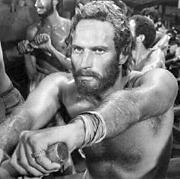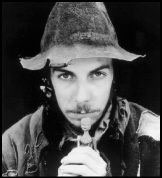“YOU CAN’T BEAT a corpse for a little comedy,” Joel Coen once said, disclosing the ethos that’s made him and brother Ethan the indie gods with the most enduring appeal. In this six-film Coen brothers retrospective, there’s not a death they don’t milk for laughs. There’s the fat guy with the crooked toupee in Miller’s Crossing (1990), the wood-chipper fiasco in Fargo (1996), and the high-rise suicide that sets The Hudsucker Proxy (1994) in motion. And if the other titles on the docket don’t rack up the body count, be sure that each handles horror and humor with the same deadpan care.
FILMS OF THE COEN BROTHERS
runs July 28-August 3 at Egyptian
Unlike Quentin Tarantino, whose irony lives in over-the-top aping of pulp fiction, the Coens unrepentantly smash their source material into pieces, then reassemble the shards into confounding comedies of freaky characters, tangled situations, and unglamorized violence. All their movies are observant, evocative, and meticulously crafted, yet none—importantly—exist in a reality that any of us would recognize.
Fargo, the Coens’ best and most straightforward picture, is set in a soul-deadened, colorless, and flat-voweled Minnesota populated with likeably dumb folks committing unthinkable acts. The hero is Marge Gunderson (Oscar-winning Frances McDormand), a pregnant policewoman who waddles though mounds of bloody snow only to return home to snuggle with her duck-painter husband (a rare moment of sincere Coen emotion). The grisly crimes she’s solved are dismissed with the click of the TV remote, leaving her as comfortably vacuous as she desires.
Unsparing stereotyping and coldhearted mockery are Coen staples. In Raising Arizona (1987) and the underrated 1998 The Big Lebowski (both of which revolve around a kidnapping, like Fargo), they pick up on the white trash aesthetic. And though Arizona is set in the easy sun-blasted world of trailer parks and rotten teeth, the anachronistic Lebowski is planted firmly in a retro Los Angeles that’s part Raymond Chandler and part Busby Berkeley. How the Dude (Jeff Bridges), a bowling aficionado and robe-wearing pothead acting as a surrogate Philip Marlowe, unravels the serpentine plot is really beside the point; absurdity is the thing.
Hence, Lebowski‘s screwball comedy isn’t just funny ha-ha. With the exception of the Dude, a most humane character (like some wastrel cousin of Marge’s), there lurks behind every hissing marmot and flamboyant Hispanic pederast a sense of dread and an utter faithlessness—in art, in humanity, in God—that is found in all the Coens’ films. We laugh at their hermetic artifice because it defines and displaces our own mortal fears of meaningless suffering and ridiculous death. Sure, it’s cruel, but the fun is all in the making fun.








